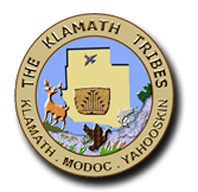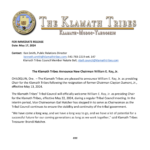Today we will finish up with the verb suffixes. I thought it best to provide examples of the use of suffixes.
1. -iya=doing the action for another person
example: uccayiya=splitting wood for someone else
2. -is=turns a verb into a noun
The noun can be either the person who does the action of the verb or the action of the verb.
example: genis=traveler or the journey
3. -as turns a verb into a noun. The action of the verb + ing.
example: hoccna + -as =hoccnas=the act of running
4. -otkis=the tool or instrument used to make the action of the verb happen.
example: sle-a + otkis=sleotkis=something to see with: glasses, microscope, telescope….
5. -ola=used to indicate that the action is complete
example: qdoca + ola=qdocola finished raining
6. -bli=the action is done again or goes back
example: snoka + bli=snokabli=takes back
7. -tampka=modoc suffix that means to begin/start an action
example: qdoca + tampka=qdocatampka=began to rain
8. -yega=Klamath suffix that means to begin an action
example: qdoca + yega=qdocayega=began to rain
9. -wa=the action occurs in water
example: tgelga + wa=tgelgawa=to stand in water
10. -amna=around, in the vicinity
example: gi + amna=giamna=to be around
Now, take a sentence and make as many different suffixes as you can.
dwa i sanauli _________ + a verb + plus a suffix. It is also possible to add a Time Element word to your sentence.
mbosant dwa i sanauli pan?





